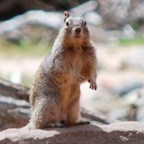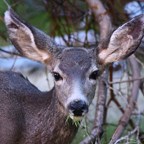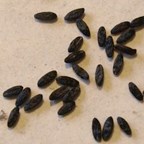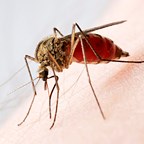|
Best Ways to Prevent Animal-Transmitted Diseases:

Animal bites and scratches: Animal bites and scratches can cause these illnesses: Tetanus, rabies, bubonic plague, hantavirus, and more. Please do not touch or feed any wildlife. 
Touching live or dead animals: As intriguing as wildlife encounters are, bacteria and parasites live in and on some wildlife species. Touching wildlife can expose you to life-threatening diseases such as bubonic plague and salmonella. 
Animal feces or urine: These diseases can be present in wildlife droppings or urine: Hantavirus, baylisascaris infection, leptospirosis, lymphocytic chorio-meningitis, salmonella, and tularemia. 
Arthropod bites: Bites from ticks, fleas, mosquitos, and other arthropods can cause dangerous illnesses: West Nile virus, lyme disease, bubonic plague, and tularemia. These organisms can live on the fur of both living and dead animals. For your safety, do not touch wildlife for any reason. For more information on animal-transmitted diseases refer to these links: |
Last updated: November 6, 2019
